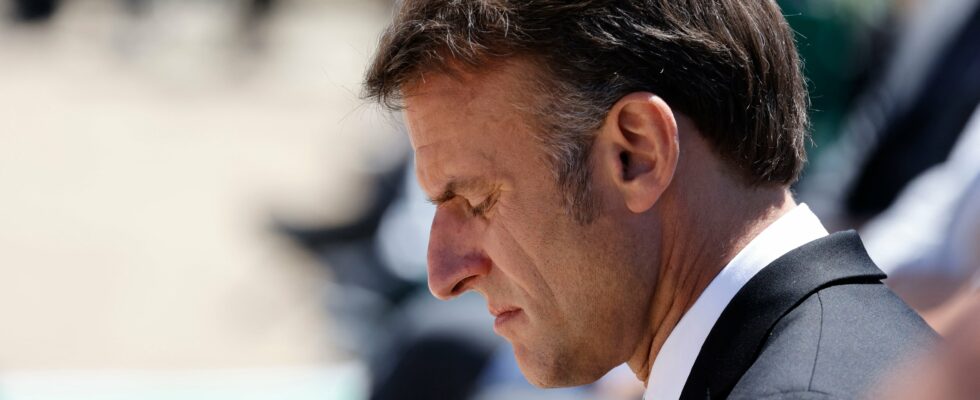From what we can know, several people, including Gabriel Attal and Yaël Braun-Pivet, tried to dissuade Emmanuel Macron from dissolving the National Assembly. Nothing was done, so it is permissible to question the fundamental reasons which led the Head of State to this conclusion, because this is indeed the decision of a man and a few close advisors. This is why the psychology and the very functioning of the president’s mind have never given rise to so much analysis by all those interested in political questions.
One of the most common interpretations is the infantilization of Emmanuel Macron. We imagine that he would have acted out of frustration and a desire to punish unconciliatory opposition. Perhaps without knowing it, these commentators could cite Alain’s writings in his book Ideas and Ages, which emphasized that the child has no other means of acting than to use adults. For this reason, his anger and the signs he sends to the giants who watch over the world seem to him to have power. Hence, having become an adult, the individual, when he has not freed himself from a certain childishness, continues to believe that he can act on things in this way.
This is a harsh judgment, but we can at least agree on the fact that our president has given little sign that he has given up essentializing his presidential victory. I had the opportunity to write, in the pages of Point, from June 2017, that the major risk weighing on him was to forget that in addition to his merit, a series of coincidences had led him to power. From then on, the danger was to rely in an exalted way on one’s intuitions without sufficiently sparing what one owes to one’s opponents.
Tactician
Another interpretation is that the president acted as a tactician. By calling the French back to the polls, we imagine, for example, that his clarification bet would already have been won. It would be a question of constituting a center of gravity which would bring to it the “reasonable” and would keep away those who, on LR or on the left, would be tempted by radicalism. The corruption of certain Republicans or the alliance of the Popular Front: all of this would have been mathematically predicted by Macron. Others say, again, a sideways glance at the polls which are accumulating, which the president has decided to lose, certain that he will tame the inexperienced Jordan Bardella in the framework of cohabitation.
Another interpretation, less flattering, makes the president an inconsistent riskophile. Achieved by a bias of optimism which would weigh down his judgment and whose origin is to be found in his sparkling career of victories: he would be gambling on the future of France as one bets on a lucky number in the lottery.
Embrace the future
All of these commentators should be wary of imagining more consistency in this decision than it initially had…what cognitive psychologist, Baruch Fischhoff, calls the “hindsight bias.” The fact remains that these hypotheses are all interesting but I wonder if we are not neglecting the fact that, at the top of the State, by being too smart, we do not end up making stupid decisions. I have in mind a game involving a coin toss where heads have an 80% chance of coming out and tails have a 20% chance of coming out. When an adult is asked to try to predict the results, they tend to use a strategy called “frequency matching”, that is to say, betting tails in 80% of cases. The problem is that in doing so it will only give a 67% correct answer.
The pigeon or the 4-year-old child are perhaps less clever than the adult who seeks to mimic the production of chance, but science shows that they will win more often by always choosing tails. Without excessively generalizing the lesson that we can draw from this little experience, it seems to me that this open sequence reminds us above all that we never have enough imagination when it comes to embracing the future. So I rather conjecture that the president is already overwhelmed by the consequences he has caused. History gallops along and rarely follows the paths that have been traced for it.
Gérald Bronner is a sociologist and professor at La Sorbonne University.
.
